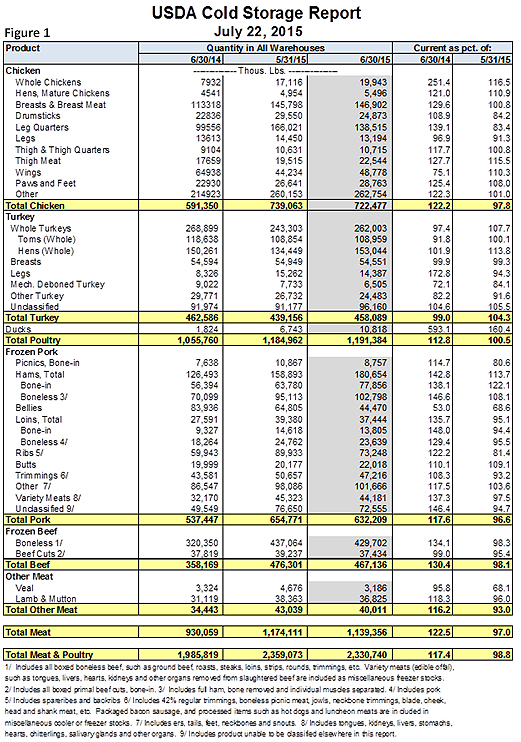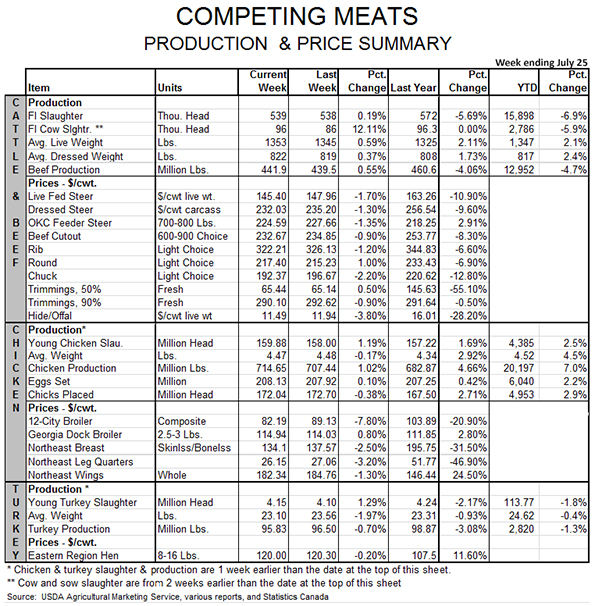



COOL is About More Than a Right-to-Know; a Lot More
US - Sen. Pat Roberts (R-KS) introduced legislation in the US Senate last week that would repeal the livestock and poultry features of the mandatory country-of-origin labeling program, writes Steve Meyer in the National Hog Farmer.The House of Representatives has already passed similar legislation that would prevent Canada and Mexico from imposing tariffs, and the clock is ticking louder and louder on those tariffs.
The United States has appealed the most recent – and we thought last – decision of the World Trade Organization to an arbitrator whose decision is due in late October. Should that decision, as all the others in this seemingly never-ending process, go against the United States and should the Senate not take action, the two countries would finally be free to move against the MCOOL program.
In his statement on the Senate floor, Sen. Roberts got it absolutely right when he said this is no longer about MCOOL and whether one believes that consumers have a “right” to know the country of origin for meat and poultry.
This is now a trade issue that threatens to disrupt the export of billions of dollars of U.S. goods. Such a disruption would harm the economy and, more important, millions of American workers. Is that supposed right to know really worth that much?
Facing headwinds
But Sen. Roberts faces some headwinds. We need to remember that this legislation came from the US Senate where it was originally proposed as part of the 2002 farm bill. It did not make it out of committee during those deliberations but was inserted into the final bill during the House-Senate negotiations to reconcile the difference in the two bodies’ farm bill versions. That insertion was driven by several Northern Plains and Corn Belt senators from both parties.
The current senators from those states – most of who were not in the Senate 13 years ago – still represent constituencies or at least vocal minorities of constituents who strongly support MCOOL.
How far will those senators go to block a repeal? That is the question since any member of the Senate can place a hold on any piece of legislation. And they can do it anonymously for whatever reason they see fit.
That’s precisely what happened in 2004 when reauthorization of the Livestock Mandatory Reporting Act was held up by a year when one senator decided that the mandatory price reporting system was not working because he and some of his constituents thought the USDA had misreported a few loads of cattle. That difference of opinion seems to pale in comparison to a supposed “right to know,” does it not?
At least the legislation is now proposed. I hope the Senate takes it up and passes it quickly to put this long fiasco behind us.
Pork inventories remain large
Last week’s Cold Storage report indicated that total meat and poultry inventories as of June 30 were down slightly from last month but 16.9 per cent larger than one year ago. (See Figure 1) Beef stocks showed the largest gain at 30.4 per cent with most of that growth being due to much larger imports.
Chicken stocks were 22.3 per cent larger than last year with “other” chicken and leg products (leg quarters, drumsticks and thighs) being the biggest contributors.
Pork inventories remain large and the big challenge is hams whose stock is up by nearly 50 per cent from one year ago and almost 14 per cent from last month. That June gain was more than 25 per cent larger than the average June buildup over the past five years.
On the other hand, belly stocks fell sharply versus both last year (-47 per cent ) and last month (-31 per cent ). The June drawdown was more than twice the average amount over the past five years.
The result: much higher belly prices. Last week’s belly primal cutout value of $143.97 was nearly 7 per cent higher than one week earlier and over twice the price ($69.47) the week of May 8. Thank goodness for bellies! As can be seen in this week’s price table, bellies are the only cut that is anywhere near its value of one year ago.

.jpg)









